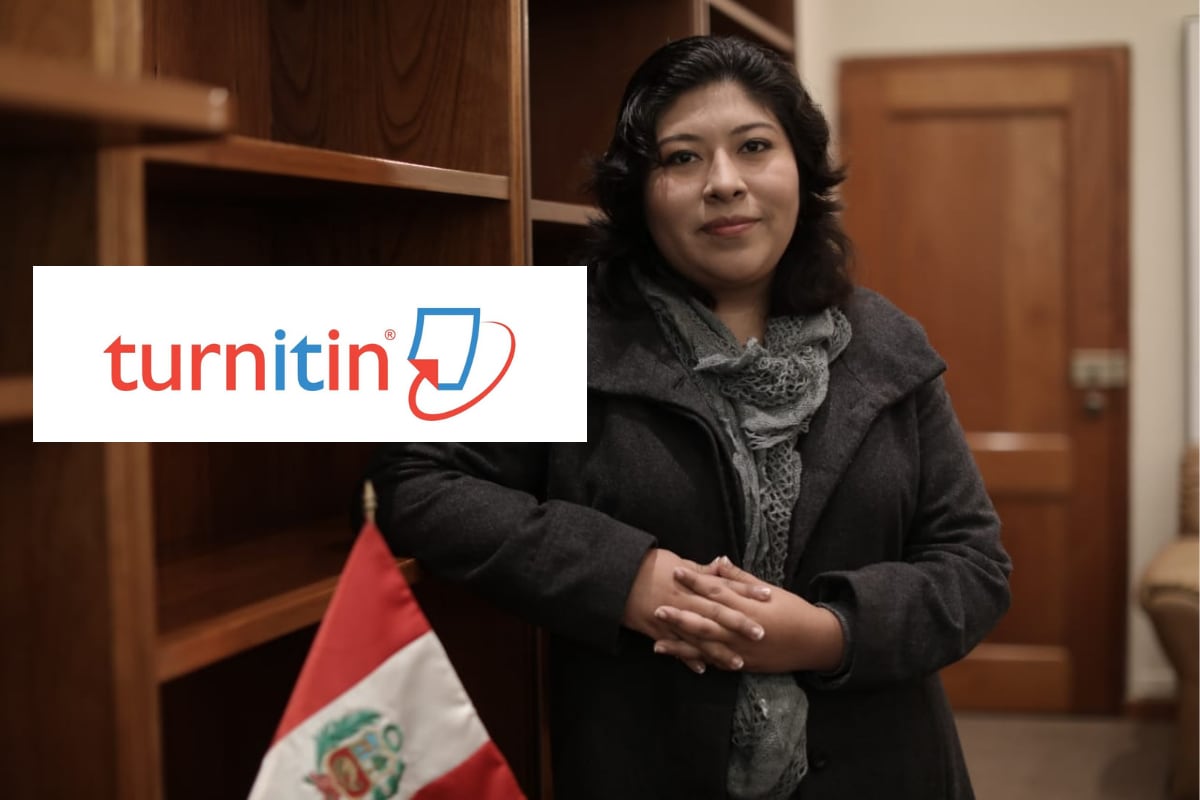
Last Sunday, Congressman Betssy Chavez was questioned after it was discovered that 49% of her Bachelor's thesis contained similarities with other academic works. Sunday Panorama pointed this out as plagiarism on the part of the current Minister of Labor; however, the Jorge Basadre National University, the house of studies where the research was presented , had a pronouncement regarding this statement.
“Currently there is no software that, in the strict sense of the word, detects plagiarism in an academic and scientific publication; there are only textural similarity detection software,” a statement from the aforementioned university reads. However, at no time was it detailed the possibility of initiating a research process to determine, through appropriate channels, the existence of plagiarism in Chávez's thesis.
It should be recalled that the Sunday that revealed this case used software that, in fact, cannot determine the existence of plagiarism, but does identify similarities with other investigations stored in its database. Once the report indicating the coincidences has been issued, it is the job of a specialist to determine the existence of plagiarism using the aforementioned document.

To determine the percentage of matches found, Turnitin uses colors such as blue which means that there are no matching texts. Green is used when there is a match between a word and 24% of the text, yellow if it is between 25% and 49%, orange between 50% and 74%, and red when between 75% and 100% of the document matches another job. According to Panorama, Minister Chávez's thesis would have coincidences of up to 49%, a figure that would correspond to the color yellow.
DEFENSE OF THE MINISTER
In her attempt to defend herself against accusations, Betssy Chávez pointed out that “the identity of a thesis is determined based on the contribution obtained from fieldwork, the approach of the problem with its variables and the analysis of the information obtained.” In a statement, he said that what is determined by the software “does not disable or diminish the value of the research work deployed, much less does it turn the thesis into “plagiarism” or “copy”.
When contacted by the journalistic program to learn about her disclaimers, Chávez decided to publish a tweet. “The power groups and their journalists say that 12 of the 396 pages of my thesis are plagiarism. Panorama and El Comercio must try a little harder”, he still reads from his Twitter account.

“He's lucky because his thesis is from 2015. The University Law of 2014 proposes that there should be regulations, finally approved in 2016, where universities are required to require originality, to have ways of verifying similarity and, of course, that there is no plagiarism in documents. If that thesis had been revised with the current regulations, it would clearly not have been able to obtain a degree,” said researcher Percy Mayta about the Minister's alleged plagiarism case.
For his part, the PUCP thesis advisor, José Tavera, stressed that “(this thesis) would not be useful. Definitely not. I can find half of what is being put in other sources. It's like I'm an information Azángaro.”
For her part, Avanza País congresswoman Norma Yarrow filed a motion to invite Labor Minister Betssy Chavez to the plenary session to explain the allegations about her university thesis.
KEEP READING
Últimas Noticias
Debanhi Escobar: they secured the motel where she was found lifeless in a cistern

The oldest person in the world died at the age of 119

Macabre find in CDMX: they left a body bagged and tied in a taxi
The eagles of America will face Manchester City in a duel of legends. Here are the details

Why is it good to bring dogs out to know the world when they are puppies




